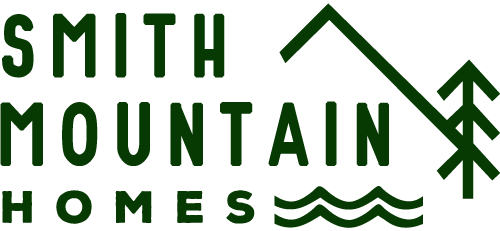It’s tax season again and if you are like the rest of us, you’re scrambling to get your records to get the best refund possible. Did you also know that if you recently bought a new home at Smith Mountain Lake or plan to do so in the near future, you may be eligible for some great tax breaks? Kenyon Blunt tells us here of three nice tax breaks for lake home buyers.
When you purchase a lake home (or any second home), you’re entitled to some significant tax breaks. In this article, I will briefly cover three ways you can save on taxes; through mortgage interest deductions, rental income, and expense and capital gains deductions.
But, first, a caveat is in order. I’m not a tax advisor (far from it); some of this gets pretty complicated so I’d recommend that you run, not walk, to your tax advisor for more complete information.
Mortgage Interest Deduction
If you finance your lake home, the loan interest is deductible as long as the mortgage does not exceed the home’s fair market value. Additionally, real estate taxes are deductible if you file an itemized return.
As long as you’re using your lake home for personal pleasure, you can deduct the interest on both your primary home and lake home as long as the debt on both doesn’t exceed $1 million. You can also deduct the interest on a home equity loan up to $100,000 annually. The exception, and it’s a big one, your lake home has to meet the IRS’ test for a personal residence. If it does, whatever you pay, you can deduct.
Whenever your lake home is rented for more than 14 days per year, you will lose a portion of this deduction. So, if you plan on renting your lake home, you may want to take steps to reduce the rentals or avoid renting it altogether.
The tax treatment is different if you’ve financed your lake home with a home equity loan. The interest on a home equity loan is deductible (up to $100k annually) without regard as to how often you rent the property. There are some disadvantages in using a home equity loan to finance your lake home; 1) you’re using your home equity to replace a loan that generates deductible interest, 2) the interest is deductible only up to $100,000, and 3) the interest is an itemized deduction rather than one that might reduce your adjusted gross income.

Rental Income and Expenses
The key factor, as I mentioned, is how many days per year you rent your lake home. The tax law established what’s called the “14-day rule.” In short, when you rent your lake home for 14 or fewer days per year, you get the tax advantages described above. A good strategy is to rent your lake home up to the maximum number of days and you won’t even need to declare the income on your tax return.
When you rent your home for more than 14 days, it starts getting complex. For starters, all your rental income needs to be reported to the IRS and you may also lose your full personal mortgage deduction. It’s now a rental expense versus a personal expense. There is a lot more detail to this rule (e.g. when you use it for more than 14 days and you rent it for more than 14 days). If you’re thinking about generating much rental income from your lake home, talk with your accountant first.
Capital Gains Exclusion
The Tax Law Act of 1977 gave a big boost to second home ownership. With these changes, you can now sell your primary home and keep up to $500,000 of tax-free capital gains (assuming joint filing). This enables you to use strategies that are perfect for owners of lake homes:
1. The 2-for-1 Strategy. You can sell your primary residence, take the tax-free proceeds, and buy two less expensive homes – a new principal residence and a lake home. The old repurchase rule (of equal or greater value) no longer applies.
2. The Multiple Exemption Strategy. The tax break can be used more than one time. It’s subject to what’s called the “2-2-2 rule” which says you must have occupied the home for two of the last five years, owned the home for two years and two years must have passed since you last used the exclusion. This lets you do the following:
-
- Buy a lake home in the area you’re interested in for retirement and use it as a rental property
- Rent it out most of the year and let the renters pay down your mortgage
- Sell your primary home and collect up to $500,000 tax-free
- Move into your rental lake home as your primary residence. Improve it enough so that you’re happy with it for retirement or sell it after two years and pocket another tax-free gain.
About the Author:
Kenyon Blunt is the publisher of “Lake Home Tips.”


